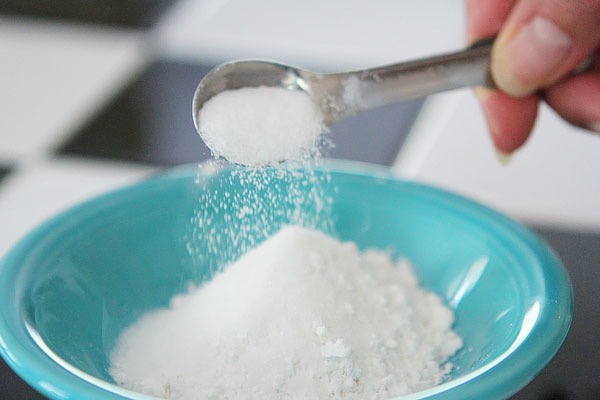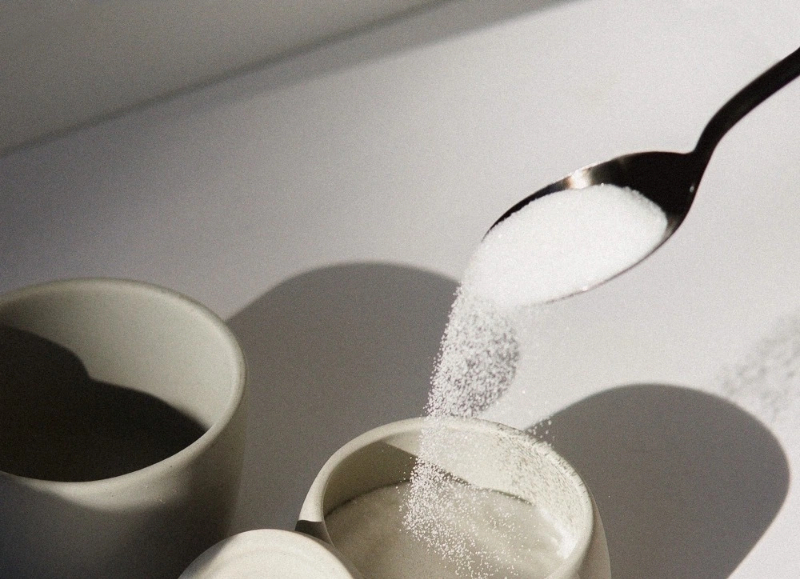Views: 222 Author: Sara Publish Time: 2025-10-20 Origin: Site








Content Menu
● Does Aspartame Contain Erythritol?
● Differences Between Aspartame and Erythritol
● Safety and Health Considerations
● FAQ
>> 1. What is the main difference between aspartame and erythritol?
>> 2. Is aspartame safe to consume?
>> 3. Can erythritol cause health issues?
>> 4. Can aspartame and erythritol be used together?
>> 5. How do these sweeteners affect blood sugar?
Aspartame and erythritol are two widely used sweeteners in the food, beverage, and healthcare industries, especially in sugar-free and low-calorie products. Our factory specializes in natural sweeteners, functional polyols, and dietary fibers, providing international manufacturers with blended sweetener development, tablet production, and OEM/ODM services.
This article explores whether aspartame contains erythritol, clarifies the differences between these sweeteners, their sources, uses, safety profiles, and recent research findings. It aims to help consumers and manufacturers make well-informed sweetener choices.

Aspartame is an artificial, low-calorie sweetener made of two amino acids: aspartic acid and phenylalanine. It is about 200 times sweeter than sucrose (table sugar). Aspartame is widely found in diet sodas, sugar-free gums, yogurt, and other low-calorie products. Despite its sweetness, it contains virtually no calories, making it a popular sugar substitute.
Erythritol is a sugar alcohol (polyol) naturally present in some fruits and fermented foods. Commercially produced by fermentation of corn or starch, erythritol is about 70% as sweet as sucrose but provides only 0.2 calories per gram. It is extensively used in sugar-free candies, baked products, and keto-friendly foods.
Aspartame does not contain erythritol. They are chemically distinct sweeteners with different structures and sources. Aspartame is an artificial sweetener synthesized from amino acids, whereas erythritol is a natural sugar alcohol obtained from fermentation or natural foods.
Though manufacturers sometimes blend sweeteners for taste or texture optimization, aspartame and erythritol are typically added separately. One is never a component of the other.

| Feature | Aspartame | Erythritol |
|---|---|---|
| Type | Artificial sweetener (dipeptide) | Natural sugar alcohol (polyol) |
| Sweetness intensity | ~200 times sweeter than sugar | ~70% as sweet as sugar |
| Calories | Virtually zero | ~0.2 calories per gram |
| Source | Synthesized from amino acids | Fermentation or naturally in fruits |
| Uses | Diet sodas, gum, yogurt | Sugar-free gum, candies, keto foods |
| Safety considerations | Avoid for phenylketonuria (PKU) patients | May cause digestive issues; emerging cardiovascular risk studies |
Aspartame is approved by global health authorities including the FDA and EFSA and is considered safe at recommended intake levels. However, individuals with the rare genetic disorder phenylketonuria (PKU) must avoid it due to inability to metabolize phenylalanine.
Erythritol is widely regarded as safe and is categorized as Generally Recognized as Safe (GRAS) by the FDA. It is better tolerated than other polyols due to near-complete absorption and excretion. However, recent studies indicate that elevated blood levels of erythritol may correlate with increased risk of cardiovascular events such as strokes and blood clots, though more research is needed to confirm causality. Researchers advise preference for natural whole foods when possible.
Aspartame provides sweetness without affecting blood sugar or insulin levels significantly, making it suitable for diabetics. Similarly, erythritol does not raise blood sugar or insulin and may promote satiety through gut hormone modulation. Animal studies show erythritol might reduce weight gain and adiposity, but findings are mixed, and clinical trials are limited.
Some studies suggest erythritol inhibits intestinal carbohydrate digestion enzymes, potentially reducing glucose absorption, but this effect appears context-dependent.
Certain manufacturers combine erythritol and aspartame to improve sweetness profiles, mouthfeel, and reduce aftertaste. Combining a high-intensity sweetener like aspartame with a bulk sweetener like erythritol allows formulators to achieve the desired sweetness and texture while minimizing calories.
Aspartame does not contain erythritol; they are two distinct sweeteners commonly used individually or blended in food and beverage products. Aspartame is an artificial sweetener made from amino acids, intensely sweet and calorie-free, except for individuals with PKU. Erythritol is a natural sugar alcohol with low calories, good tolerance, and emerging research highlighting possible cardiovascular risks linked to elevated blood levels. Consumers and manufacturers should understand these differences and safety considerations when choosing and using these sweeteners.

Aspartame is an artificial sweetener synthesized from amino acids, about 200 times sweeter than sugar. Erythritol is a natural sugar alcohol, about 70% as sweet as sugar, with low calories and derived from fermentation or natural foods.
Aspartame is considered safe by regulatory bodies like the FDA for most people, but must be avoided by individuals with phenylketonuria (PKU), a rare metabolic disorder.
Erythritol is generally safe and well tolerated but recent studies raise concerns about its association with cardiovascular risks when blood levels are elevated, warranting further research.
Yes, they are often combined in products to achieve balanced sweetness and texture, but one does not contain the other.
Both aspartame and erythritol have minimal to no effect on blood glucose, making them suitable for people managing blood sugar levels.
[1](https://www.linkedin.com/pulse/differences-between-erythritol-aspartame-eric-pang)
[2](https://www.usatoday.com/story/news/health/2023/03/23/sweeteners-erythritol-sucralose-aspartame-sugar-explained/11520864002/)
[3](https://www.nhs.uk/live-well/eat-well/food-types/are-sweeteners-safe/)
[4](https://www.cspi.org/article/which-low-calorie-sweeteners-are-safe-and-which-arent)
[5](https://www.fda.gov/food/food-additives-petitions/aspartame-and-other-sweeteners-food)
[6](https://www.goodrx.com/well-being/diet-nutrition/sweeteners)
[7](https://www.usatoday.com/story/life/food-dining/2023/06/11/what-is-the-healthiest-sugar-substitute/70283021007/)
[8](https://www.cancercenter.com/risk-factors/artificial-sweeteners-cancer)
[9](https://www.healthline.com/nutrition/healthy-natural-sweeteners)
[10](https://pmc.ncbi.nlm.nih.gov/articles/PMC9824470/)
